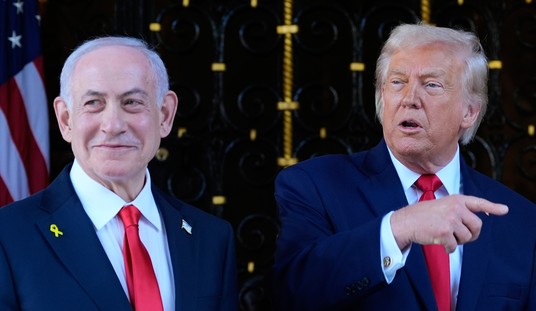After Netanyahu’s meeting with Obama last month, Israeli commentator Aluf Benn noted that “many people in Washington seemed to be more interested in the life expectancy of the current Israeli government than in Netanyahu’s positions.”
Last week in London, dovish Likud minister Dan Meridor reportedly complained to a U.S. delegation that “Washington’s demands of a complete construction freeze would lead to the dissolution of the Netanyahu government.” The Israeli side was said to be “stunned by the uncompromising U.S. stance.”
Israeli commentator Ben Caspit claims the following, from Netanyahu:
“What do they want from me? That my government will fall?”
The Obama administration’s heavy pressure on the settlement issue may well intend precisely that.
This week, Defense Minister Ehud Barak will be in Washington for talks with — among others — Vice President Joe Biden, Defense Secretary Robert Gates, and National Security Adviser James Jones. Barak, from the left-of-center Labor Party, is the most dovish major minister in the government. Netanyahu badly wanted Barak and his party within his coalition, partly due to the belief that Labor’s dovish image would shore up Netanyahu’s legitimacy. Barak is said to agree that the U.S. demand for a total settlement freeze, even on “natural growth,” is unreasonable, and is expected to present that position in Washington.
Netanyahu may be finding out the hard way, though, that if Obama and his crew are dead-set against his government, even including perceived moderates in his coalition won’t help. Apart from the diplomatic rumors, there are reasons to believe the U.S. wants to see Bibi go:
1. Netanyahu is a despised man in Washington. In a well-known snippet from his book The Missing Peace, veteran peace-processer and current Persian Gulf envoy Dennis Ross called Netanyahu, in his previous prime-ministerial stint, “nearly insufferable.” In February, after Netanyahu’s Likud and the right wing did well in the Israeli election, the Washington Post reported that “many key players [in the U.S. administration] have long and difficult memories of dealing with … Netanyahu … when he was prime minister during the Clinton administration.” Another peace-processer from that era, Aaron David Miller, said “This is like hanging a ‘closed for the season’ sign on any peacemaking for the next year or so.”
Whatever personal qualities of Netanyahu some of the Americans find objectionable, they don’t like his insistence on traditional Israeli security concerns regarding the West Bank, which they see as precluding the much-desired further empowerment of the Palestinians. They much prefer pliant figures like former Prime Minister Ehud Olmert and former Foreign Minister Tzipi Livni, who proclaim their readiness to return Israel to the perilous dimensions of what have been called the Auschwitz borders.
2. It is hard to believe the U.S. sees an Israeli-Palestinian settlement as imminent. The administration knows Hamas now controls Gaza, and surely has access to intelligence reports on the weakness, divisions, and falling popularity of Mahmoud Abbas and his Fatah on the West Bank. As for the current state of intra-Palestinian unity, all one had to do was read, for instance, about this week’s killing by Fatah forces of two Hamas operatives on the West Bank.
The pressure for a settlement freeze is more plausibly aimed at the Netanyahu government itself — at fracturing and dissolving it — than towards bringing about a peace settlement, especially when there is nothing remotely approaching reciprocal pressure on the Palestinian side.
3. The U.S. doesn’t want Israel to attack Iran and sees a Netanyahu-led government as much more likely to do so than one led by the likes of current opposition leader Livni. Biden has said Israel “would be ill-advised” to move on Iran. Jones has said Israel can “diminish [the] existential threat” posed by Iran’s approaching nuclearization — not by doing anything about it, but “by working hard towards achieving a two-state solution.” CIA chief Leon Panetta was sent to Israel to warn expressly against taking action.
The U.S. knows that Netanyahu’s existential concern about Iranian nukes is intense and — though that concern is indeed shared across the Israeli spectrum — the previous Olmert-Livni government had much more trust in the international community to take care of the problem.
4. The Americans are cognizant that two previous Likud-led coalitions were felled by dissension from the right. In 1992, Prime Minister Yitzhak Shamir’s government collapsed when the small Tehiya faction — closely associated with the settlement movement — bolted the coalition over Israel’s participation in the Madrid Conference. In 1999, Netanyahu’s first government similarly disintegrated when right-wing factions left it over Netanyahu’s agreement to West Bank territorial concessions in the Wye Memorandum.
Given the current low prospects of another peace conference or signed Israeli-Palestinian agreement, the U.S. can best disgruntle, and possibly disaffect, the more right-wing elements of Netanyahu’s present coalition by exerting pressure on the settlement issue. Netanyahu has already had to reassure perturbed Knesset members from his own party over assenting to Obama’s demand to remove some small unauthorized West Bank outposts.
At a time of mounting peril, it is hard for the Netanyahu government or most of the Israeli population to see the Obama administration as much of a faithful ally. It warns Israel against hitting Iran while announcing its own leisurely timeline of talking with the mullahs until the end of the year. While Israel needs unity, Obama foments internal tensions regarding “natural growth.”
Netanyahu, Barak, and crew — if they can hold it together — have a hard road ahead.









Join the conversation as a VIP Member